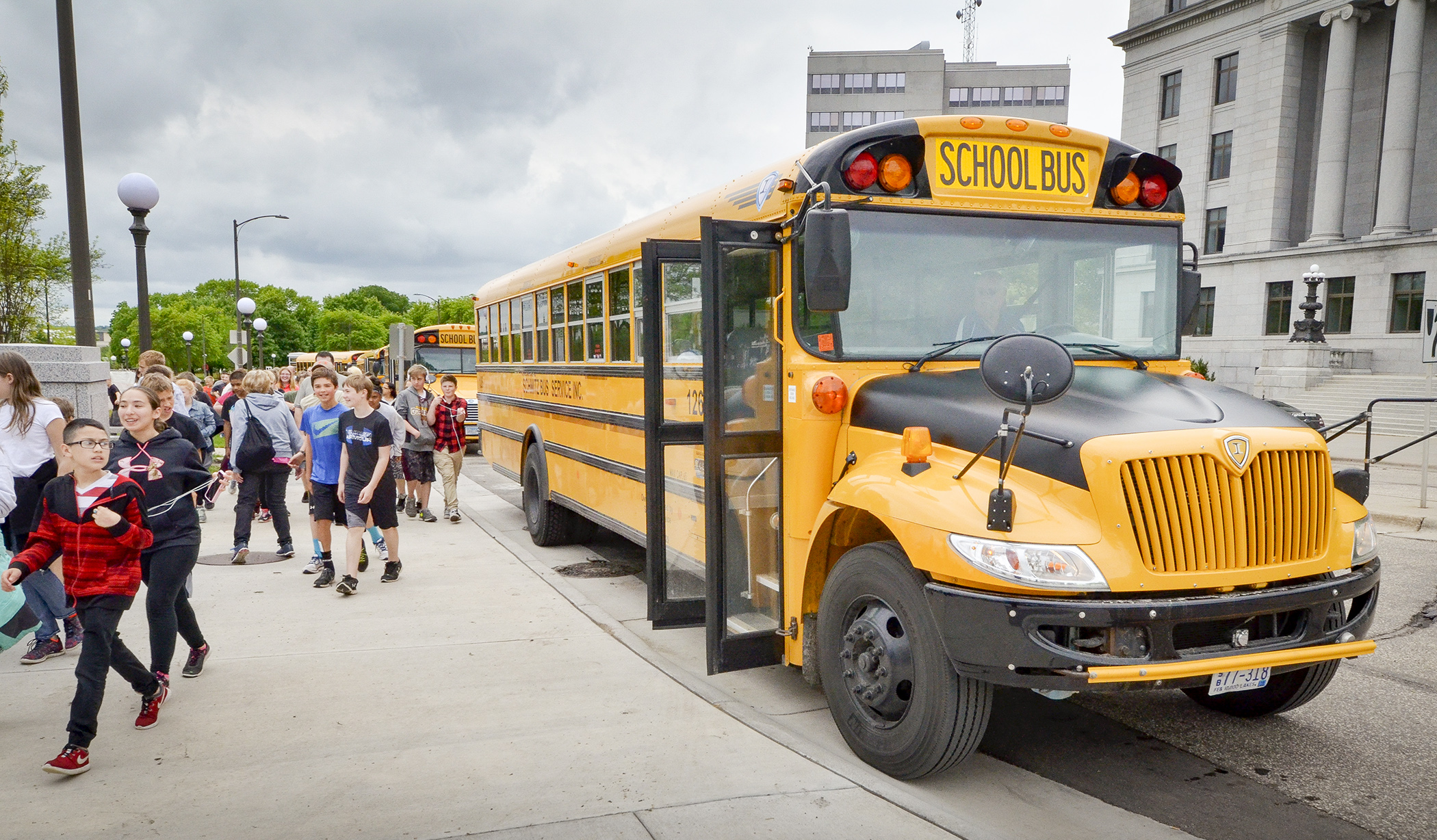New proposal targets drivers who ignore school bus stop-arms

There are more than 12,000 school buses on Minnesota roads during a typical school day making hundreds of thousands of pickups and drop-offs which require the cooperation of other motorists to occur safely.
Unfortunately, but perhaps unsurprisingly to anyone who drives regularly, that cooperation isn’t always given.
It is estimated there are more than 100,000 instances each year in Minnesota when a motorist passes a school bus while its stop-arm is extended and children are either in, or close to, the road.
Only a fraction of those offenders are ever ticketed, according to the Minnesota Sheriffs’ Association, which supports HF2172, a bill approved Tuesday by the House Transportation Finance and Policy Committee. It would use an increased fine for those violations to equip school buses with a camera to catch offenders and, hopefully, increase safety.
“We’ve seen too many injuries and fatalities due to other drivers passing a school bus while the emergency lights are flashing and the stop-arm is extended,” said Rep. Dan Wolgamott (DFL-St. Cloud), the bill’s sponsor. “The goal of this bill is to deter illegal school bus passings by equipping more buses in our state with stop-arm cameras.”
Members voted 14-3 to approve the bill, as amended, and referred it to the House Judiciary Finance and Civil Law Committee. The companion, SF584, is sponsored by Sen. Scott Newman (R-Hutchinson) and awaits action by the Senate Judiciary and Public Safety Finance and Policy Committee.
The current penalties for passing a stopped school bus are a $500 misdemeanor fine for the driver, or $100 petty misdemeanor fine to the vehicle owner if the driver can’t be identified. The bill would increase that petty misdemeanor penalty to $300 and direct $250 of that amount to the school district where the violation occurs to buy, use and maintain stop-arm camera systems.
Wolgamott said $300 is the maximum fine allowed for a petty misdemeanor violation and it should create an “adequate revenue stream” to make sure all of the state’s school buses eventually have the cameras.
Rep. Cal Bahr (R-East Bethel), who voted against the bill, wondered whether using stop-arm cameras to catch violators would be constitutional. He noted the similarity to traffic-light cameras, which were used briefly to catch violations and issue citations for them before courts prohibited the practice.
“It’s videotaping an action that is later transferred to a law enforcement agent who will then write the ticket, not being present, and that was the problem,” Bahr said. “It seems to me this is exactly the same thing that was.”
However, Rep. Steve Elkins (DFL-Bloomington) said the legal problem with traffic-light cameras being used to issue citations was that state law “requires a crime be observed by a person in addition to the camera … and in this case the camera is recording the same thing the driver sees,” which avoids that problem.
Rep. Frank Hornstein (DFL-Mpls), the committee chair, said members of the judiciary committee would be able to explore the issue more fully, along with any data privacy concerns at the bill’s next stop.
Related Articles
Search Session Daily
Advanced Search OptionsPriority Dailies
Stable budget outlook projects $3.7 billion surplus now, no deficit in next biennium
By Lisa Kaczke The projected surplus for Fiscal Years 2026-27 is now higher than it was in the November estimate, and no deficit is projected for the next biennium.
“Minnesota’s budge...
The projected surplus for Fiscal Years 2026-27 is now higher than it was in the November estimate, and no deficit is projected for the next biennium.
“Minnesota’s budge...
Legislative leaders set 2026 committee deadlines
By Lisa Kaczke Legislative leaders on Tuesday officially set the timeline for getting bills through the committee process during the upcoming 2026 session.
Here are the three deadlines for...
Legislative leaders on Tuesday officially set the timeline for getting bills through the committee process during the upcoming 2026 session.
Here are the three deadlines for...